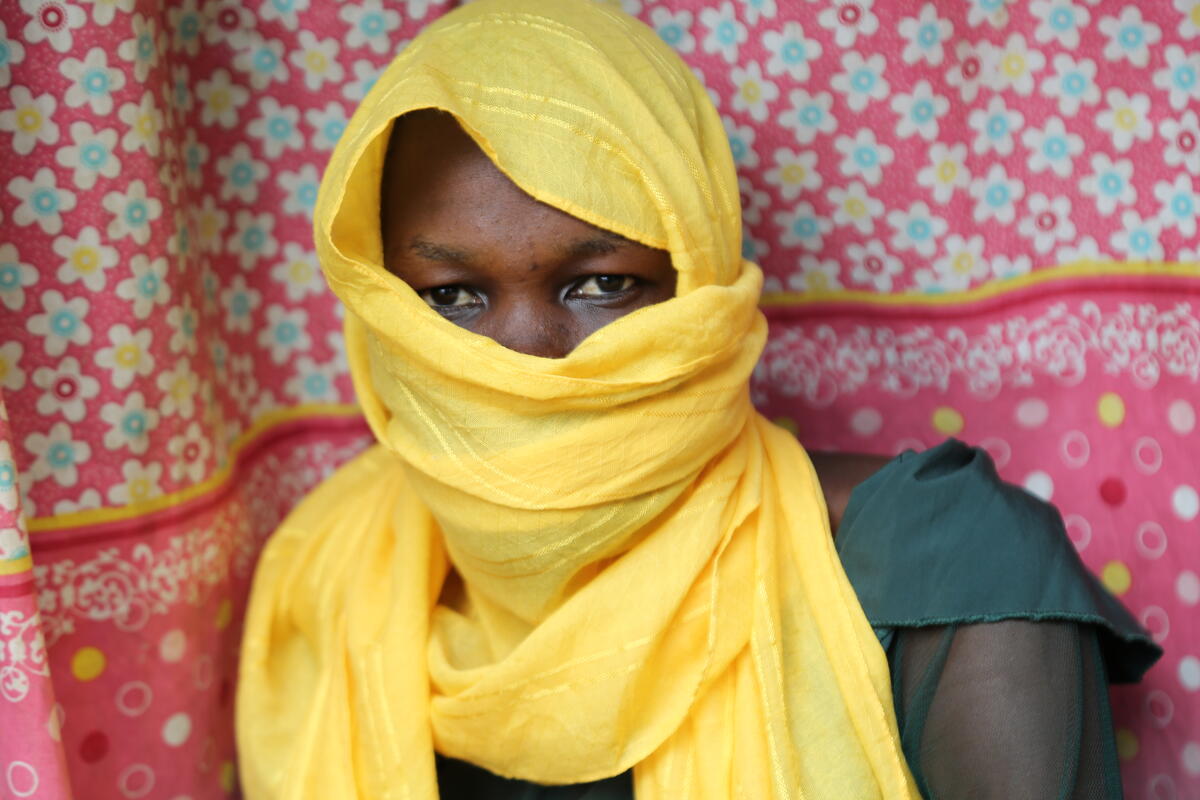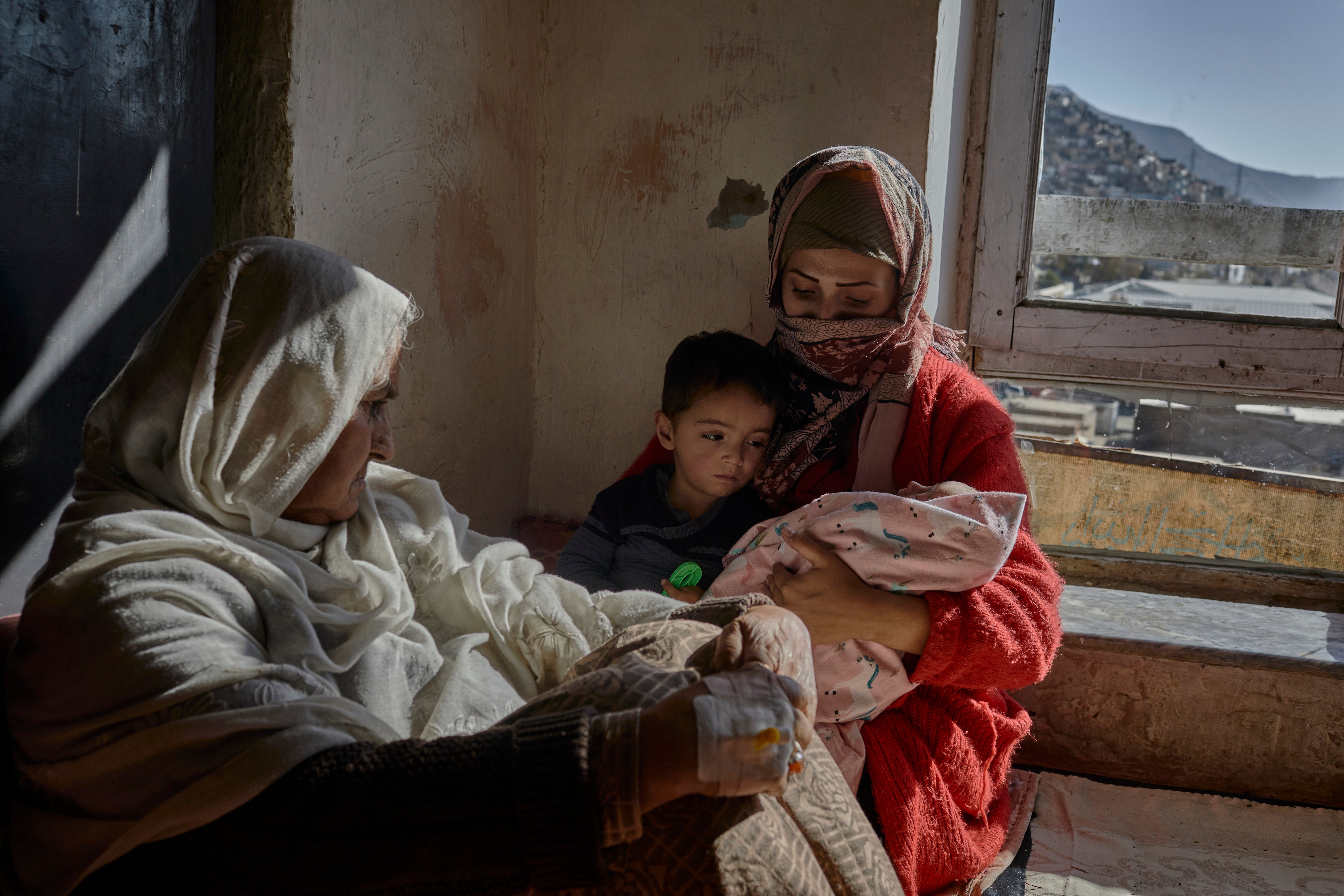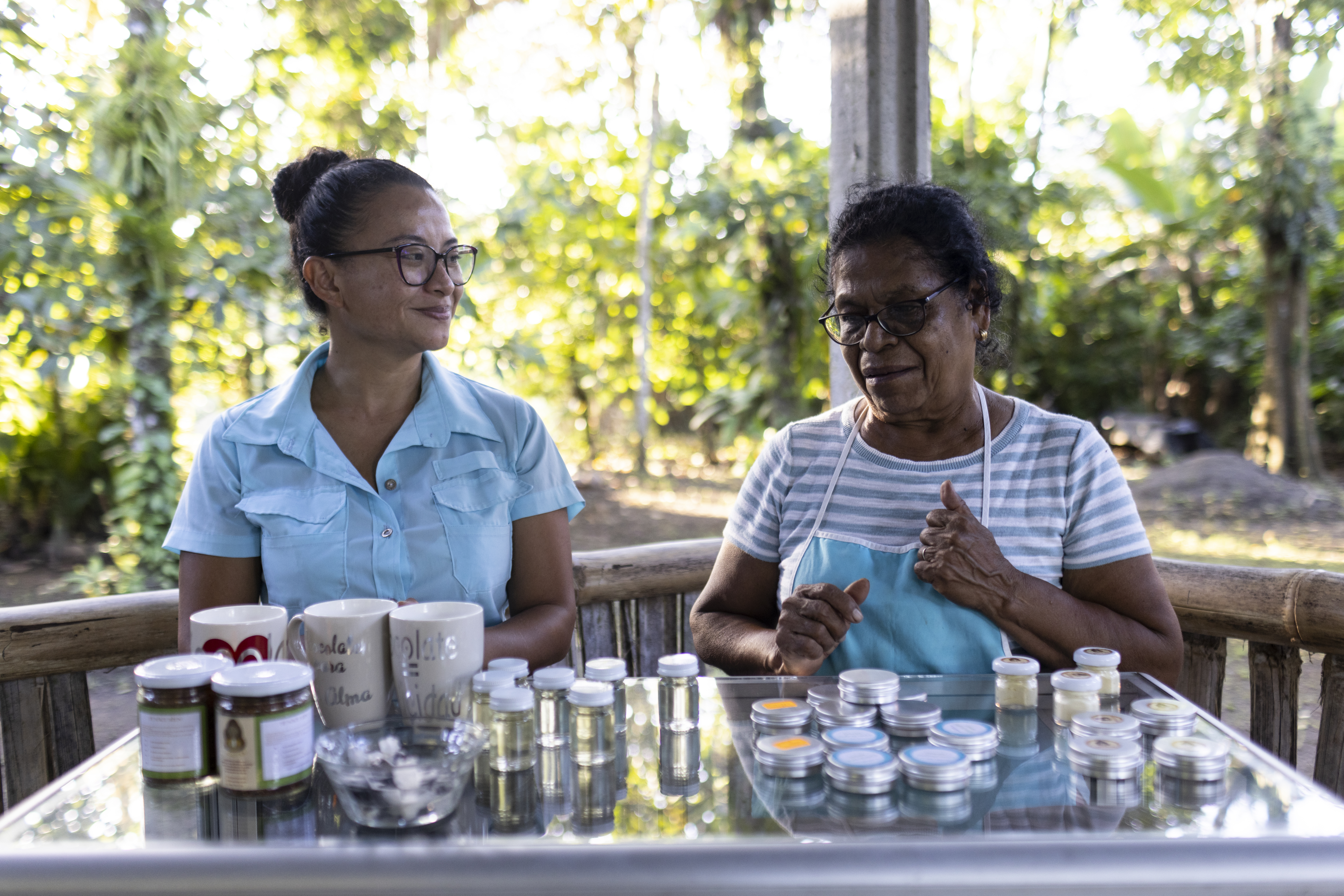Sudanese women seek to bring democracy back up the river
Sudanese women seek to bring democracy back up the river

MOYO, Uganda, August 5 (UNHCR) - Standing on the banks of the River Nile and looking north from Moyo district, Rebecca Dau can see her homeland. Sudan is so close to her plot of land in a UNHCR-run Uganda refugee settlement that she says she could walk there and back in one day. But although she can see Sudan just up the river, she sometimes thinks that the country she took flight from two years ago is in another world.
"Two years ago I would never have dreamed about having a say about my own future, let alone the future of others," she says with a coy smile. "Today I can't imagine not having a voice."
As a woman in southern Sudan, Dau had no access to formal education or decision-making powers in her small rural village. However, all that changed the day she was swept up into southern Sudan's 21-year civil war and found herself fleeing to Uganda to join almost 200,000 of her countrymen.
After two years in the UNHCR settlement in Moyo, she has gone to school, where she has learned to speak passable English. Dau is also on her village's food committee, where she helps to make decisions about the distribution of food to children. "It makes sense for women to make decisions about what goes in a baby's mouth," says this mother of two.
However, as peace edges nearer in southern Sudan and life in the UNHCR settlement draws closer to an end, women like Dau wonder if the democratic freedoms they enjoy under the agency's protection will continue when they return to Sudan.
"What we have learned here in the settlements, we will take back to Sudan," says James Majur, a refugee welfare committee chairman. "We have seen a massive rethinking in the settlement regarding the roles of women. We are managing with the help of NGOs to raise understanding about the benefits of balances between men and women in society."
Majur says that most of the men who have spent time in UNHCR settlements would be keen to see this way of thinking continue in Sudan, but admits there is still more work to do to and it all begins with education.
Peter Oluka is a community services coordinator for Aktion Afrika Hilfe (AAH), a German non-governmental organisation that has been working with UNHCR for the past decade to promote democracy and women's and children's rights among Sudanese refugees in Moyo.
"Schooling girls is one way to bring balance to a society," says Oluka, noting that girls make up 23 percent of Moyo's refugee secondary schools, compared to just 7 percent a few years ago. "But to really address the problem, you have to include women in all decision making."
AAH has organised refugee councils, development and environmental protection committees, water, health and food committees, not to mention cultural and youth groups in Moyo with some success. All of them have female members.
"One of the greatest achievements of these committees is that men are listening to women and showing greater responsibility to them through the democratic process," says Oluka.
If there was ever a success story for female refugee empowerment, it would be Inne Bladinia. A farmer and mother of six, Bladinia is the only female refugee welfare committee chairman in Moyo. She possesses a quiet demeanour that belies the hectic responsibility that comes with looking after the 140 families in her village group.
Since her election to the committee six years ago, she has helped settle anything from domestic disputes among refugees to land issues between refugees and nationals. She feels strongly about the importance of education and the democratic process.
"If I had not gone to school, then I would not have been chosen as a committee candidate," she says. "And if there was no fair election process, then nobody could have voted for me."
She has the respect of the community, which she feels raises her self confidence and allows her to be more self reliant.
"What we have done here in the settlement with UNHCR needs to be taught back in Sudan," says Bladinia. "I am constantly encouraging girl children to break the mould they had back in Sudan and be leaders, but this can only begin with education and a society that is based on fairness."

Bladinia has faith that following the finalisation of peace agreements in southern Sudan, the returning refugees will be able to continue living their lives under the umbrella of democracy and fairness that they have found in the settlements.
"The rest is God's will."
By Dennis Duncan
UNHCR Uganda









